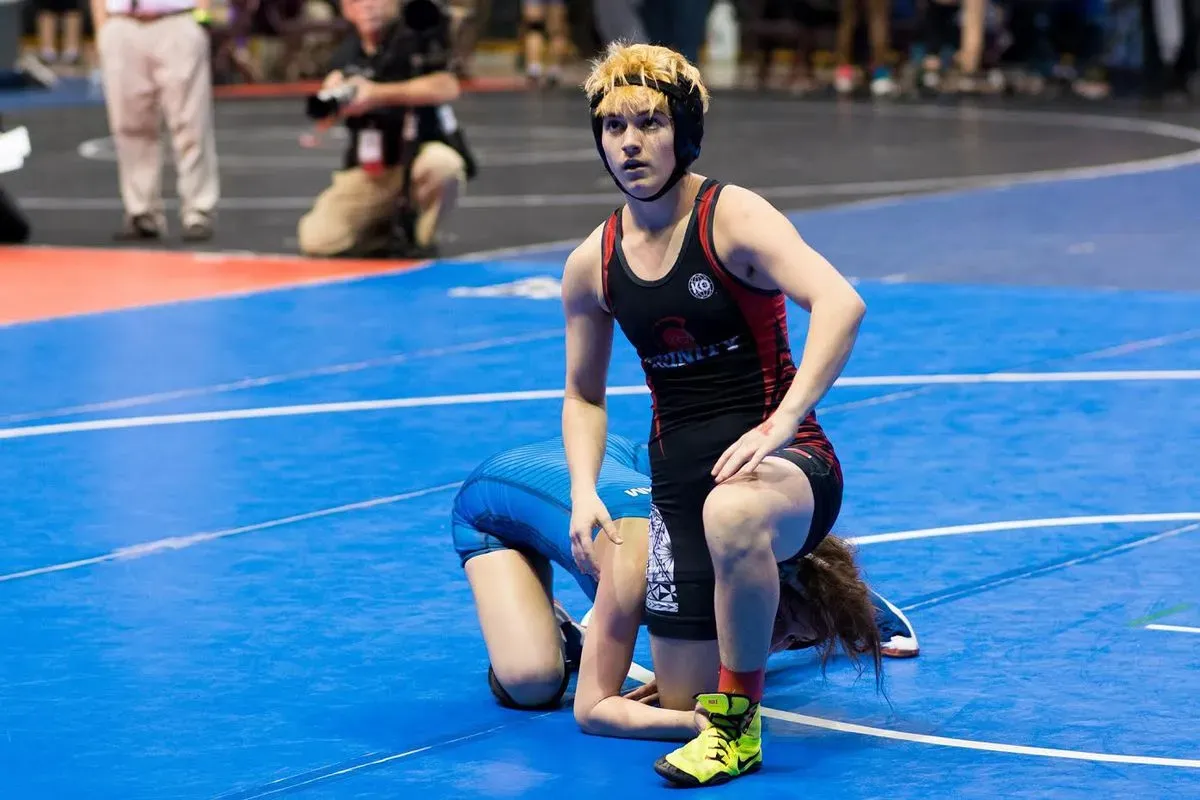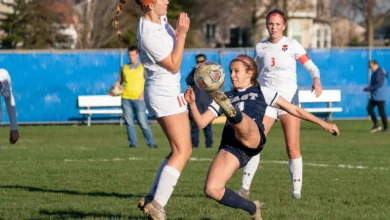Dallas Schools Transgender Athletes Policy Update 2025

Dallas schools are now set to implement tighter restrictions on transgender athletes in girls’ sports, a decision that arose following revelations about possible loopholes in the system. The Dallas Independent School District (ISD) has come under scrutiny after Texas Attorney General Ken Paxton announced that the district must align its policies with the recent Texas sports law to prevent transgender athletes from participating on girls’ teams. The initiative follows a video featuring a Dallas ISD official discussing methods for a male athlete to join a girls’ sports team using altered birth certificates, exposing significant concerns around gender eligibility sports. In light of the Save Women’s Sports Act, which specifically limits participation based on biological sex as indicated on official documents, the Dallas ISD news indicates a shift toward stricter compliance with state regulations. As the conversation surrounding transgender athletes and their restrictions intensifies, Dallas schools highlight their commitment to safeguarding the integrity of women’s sports in Texas.
The ongoing debate about the participation of transgender individuals in competitive sports, especially within educational institutions, has sparked a significant shift in policy among Dallas schools. Focusing on the limitations imposed by Texas legislation, including recent developments from the Dallas Independent School District, it’s evident that schools are reevaluating their stance on gender inclusivity in athletics. Concerns regarding fairness and competitive balance have led to the clarification of rules surrounding athletes’ gender classification, as seen with the enforcement of the Save Women’s Sports Act. Amidst rising tensions around these policies, alternative terms like gender identity in sports and eligibility criteria are vital for understanding the broader implications for student athletes. As Dallas ISD navigates these sensitive issues, the emphasis will remain on adherence to state laws while also addressing the community’s input on transgender athlete participation.
Introduction to Dallas ISD’s Restrictions on Transgender Athletes
The recent announcement from the Dallas Independent School District (ISD) highlights the growing tension surrounding transgender athletes’ participation in school sports. Following a revealing video where a district official discussed potential loopholes in the Texas sports law, the district has agreed to tighten restrictions on transgender athletes. This decision aligns with the recently enforced Save Women’s Sports Act, which seeks to ensure that only biological females compete in girls’ sports, further underscoring the legal and ethical debates prevalent in the state.
The Dallas ISD’s commitment to comply with Texas law reflects a significant shift in how public schools approach gender eligibility in sports. After scrutiny from Texas Attorney General Ken Paxton, including a request for documentation regarding the situation, it is clear that there are serious implications for school districts that fail to enforce these laws. This new policy aims to protect the integrity of girls’ sports, addressing concerns that biological males, labeled as transgender, may exploit loopholes in regulations to gain competitive advantages.
Impact of the Save Women’s Sports Act on Texas Schools
The Save Women’s Sports Act has become a cornerstone of the conversation surrounding gender and athletics in Texas. By prohibiting transgender athletes from competing in girls’ sports, the law aims to maintain a level playing field that proponents argue is essential for female athletes. This legal mandate has raised numerous questions within school districts, especially regarding the handling of birth certificates and the verification of gender identity for eligibility in sports.
As schools across Texas, including the Dallas ISD, grapple with the implications of this law, they are tasked with implementing policies that not only comply with state regulations but also address the needs and rights of all students. Critics of the Act argue that it marginalizes transgender youth and limits their opportunities to participate in sports. In contrast, supporters claim it preserves the competitive nature of women’s sports and upholds the legislative intent behind the new regulations.
Transgender Athletes Restrictions in Texas: Legal Framework
The recent developments surrounding Dallas ISD’s adoption of restrictions on transgender athletes are closely linked to existing legal frameworks aimed at regulating gender eligibility in school sports. With the implementation of the Save Women’s Sports Act, Texas schools must adhere strictly to the guidelines that dictate which students can compete in gender-specific categories. This has fostered a landscape where the interpretation and enforcement of these laws have become contentious issues, especially as they relate to the documentation of gender identity through birth certificates.
Legal challenges are expected to arise as schools navigate the complex dynamics between state law and the rights of transgender individuals. With the Attorney General’s office closely monitoring compliance, school districts may face significant legal consequences if they fail to uphold the standards set forth by the law. The ongoing debate highlights the necessity for clear policies that balance the rights of transgender athletes while ensuring that regulations intended to protect women’s sports are effectively enforced.
Dallas ISD News: Community Reaction to Policy Changes
The recent policy change in the Dallas Independent School District has stirred a variety of reactions among parents, educators, and students. Many community members express concerns that these new restrictions not only affect transgender athletes but also diminish inclusivity within school systems. Opponents to the changes argue that sports should be a space for all students, advocating for policies that embrace diversity rather than create barriers based on gender identity.
Conversely, supporters of the Dallas ISD’s decision believe it is a necessary step to maintain fairness in athletic competitions. They argue that allowing transgender athletes to compete in girls’ sports undermines the achievements of biological females. This community divide underscores the ongoing struggle schools face in translating legislative mandates into practical, community-accepted policies.
Gender Eligibility in Sports: A Growing Concern
Gender eligibility in sports has become a pressing concern for athletic associations and school districts alike. The introduction of policies like the Save Women’s Sports Act has prompted schools to reevaluate their stance on gender and competition, leading to a push for stringent verification processes regarding athletes’ gender identity. This shift has sparked debates about biological differences and competitive fairness, which are vital to maintaining the integrity of women’s sports.
As Dallas ISD navigates these sensitive waters, discussions regarding the implications of gender eligibility will likely persist. School districts must address how to implement changes effectively while also fostering an environment of respect and inclusiveness for all students. This balancing act is essential for schools to ensure adherence to state laws, while also recognizing the diverse identities present in today’s society.
The Role of Parents in Shaping Sports Policy
Parents play a crucial role in the ongoing dialogue about sports policies at schools, especially regarding transgender athlete participation. With the enactment of laws like the Save Women’s Sports Act, many parents are passionate about advocating for what they believe is best for their children and the community. This engagement can take the form of attending school board meetings, participating in discussions, or voicing their opinions to local and state representatives.
Moreover, parental involvement is vital in shaping policies that govern schools, particularly in the face of changing social norms and legal frameworks. A united voice from parents could lead to more inclusive and thoughtful approaches to athletics that take into consideration not just competitive fairness, but also the well-being of all students. The active participation of parents ensures that policies reflect a broader understanding of the importance of fostering strong, equitable sports environments.
Challenges Faced by Transgender Athletes in Dallas Schools
Transgender athletes in Dallas schools face numerous challenges as the landscape of sports becomes increasingly segmented by gender identity regulations. The restrictions imposed by policies such as the Save Women’s Sports Act can create a daunting environment for those seeking to engage in athletics. Many transgender students may feel discouraged from participating or fear backlash from peers, leading to feelings of isolation.
Additionally, navigating the bureaucratic processes required to ensure compliance with school policies may pose further obstacles. This can include obtaining proper documentation, such as adjusted birth certificates, which not all transgender individuals may have access to or be prepared for. The pressure these students may face highlights the need for greater support systems within schools to help them overcome these barriers and provide them with opportunities to compete fairly.
Future Implications for Transgender Policies in Texas Sports
The future of transgender policies in Texas sports remains uncertain as debates surrounding these issues continue to evolve. With ongoing legal scrutiny and societal attitudes shifting, schools may need to remain adaptable in their approaches to gender eligibility in sports. Future legislation could either reinforce the restrictions seen in current laws or pivot towards more inclusive policies, depending on public sentiment and advocacy efforts across the state.
As discussions about inclusivity and fairness progress, it’s likely that school districts will be compelled to reevaluate their policies periodically. Advocates for transgender rights may push for modifications that align with broader movements for equality and recognition in sports. This dynamic landscape will necessitate ongoing dialogue and cooperation among lawmakers, educational institutions, and the communities they serve.
Conclusion: Navigating the Future of Sports and Gender Identity
As Dallas schools implement stricter regulations on transgender athletes, the conversation about gender identity in sports is just beginning. The implications of such policies extend beyond the playing field and into wider societal discussions about identity, fairness, and inclusion. Looking ahead, it will be crucial for schools to navigate these challenges thoughtfully, balancing legal requirements while promoting an environment where all athletes feel valued and respected.
Ultimately, the way forward will require collaboration between educators, advocates, parents, and the students themselves. To foster a healthier sports culture, it’s vital to engage in constructive conversations that prioritize both the rights of transgender athletes and the integrity of women’s sports. Whether through policy changes or community discussions, the goal should be to create a sports landscape in Texas that reflects respect, understanding, and equality for all students.
Frequently Asked Questions
What are the latest developments regarding Dallas schools and transgender athletes in girls’ sports?
Recent developments reveal that Dallas schools, notably the Dallas Independent School District (ISD), have implemented new restrictions on transgender athletes in girls’ sports. This follows an agreement with Texas Attorney General Ken Paxton to comply with the state’s Save Women’s Sports Act, prohibiting biological males from competing in girls’ sports. This action arises after concerns over potential loopholes regarding altered birth certificates enabling participation in girls’ sports.
What impact does the Save Women’s Sports Act have on transgender athletes in Dallas schools?
The Save Women’s Sports Act significantly impacts transgender athletes in Dallas schools by restricting their participation in girls’ sports. Under this law, athletes can only compete in the gender category listed on their original birth certificate, barring any modifications. This move aims to protect the integrity of women’s sports and ensure compliance with Texas law.
How has Dallas ISD responded to Texas Attorney General’s concerns about transgender athletes?
Dallas ISD has responded to Texas Attorney General Ken Paxton’s concerns by agreeing to enforce stricter measures that prevent transgender athletes from competing in girls’ sports. This decision comes in light of Paxton’s investigation and the need to adhere to the legislative requirements set forth by the Save Women’s Sports Act, ensuring that district policies align with state law.
What loopholes regarding transgender athletes in Dallas schools were recently exposed?
Loopholes regarding transgender athletes in Dallas schools were exposed by a video where a district official discussed how a biologically male child could potentially join a girls’ team using altered birth certificates. This revelation prompted Texas Attorney General Ken Paxton’s intervention, leading to an agreement requiring Dallas ISD to tighten restrictions and uphold the legal standards regarding gender eligibility in school sports.
What does the Texas sports law say about gender eligibility for school sports in Dallas?
Texas sports law, particularly the Save Women’s Sports Act, mandates that transgender athletes must compete in sports based on their gender assigned at birth. This law restricts participation in girls’ sports for biological males and only allows schools to make exceptions for clerical errors on birth certificates, thus impacting the eligibility of transgender athletes in Dallas schools.
| Key Point | Details |
|---|---|
| New Restrictions | Dallas schools will tighten restrictions on transgender athletes in girls’ sports. |
| Legal Compliance | Dallas ISD agreed to comply with state law preventing transgender athletes from competing in girls’ sports. |
| Personal Accounts | A video surfaced showing a Dallas ISD official discussing ways to exploit loopholes for transgender athletes. |
| Attorney General’s Involvement | Texas Attorney General Ken Paxton sought records and announced legal actions against Dallas ISD. |
| Recent Legislation | The Save Women’s Sports Act prohibits transgender athletes in girls’ sports, only recognizing the gender on birth certificates. |
| Future Implications | Non-compliance with the law by other school districts will result in repercussions according to AG Paxton. |
Summary
Dallas schools transgender athletes have become the center of a legal and social debate following the announcement of new restrictions by the Dallas Independent School District. As school districts across Texas take a stand on this contentious issue, Attorney General Ken Paxton emphasizes the importance of adhering to state laws protecting girls’ sports from the implications of transitioning policies. The enforcement of restrictions aims to clarify the regulations around biological sex in sports, ensuring that athletes compete in categories correlating with their original birth certificates. This topic continues to evoke strong opinions, reflecting broader societal conversations about gender identity, inclusion, and equity in athletics.




